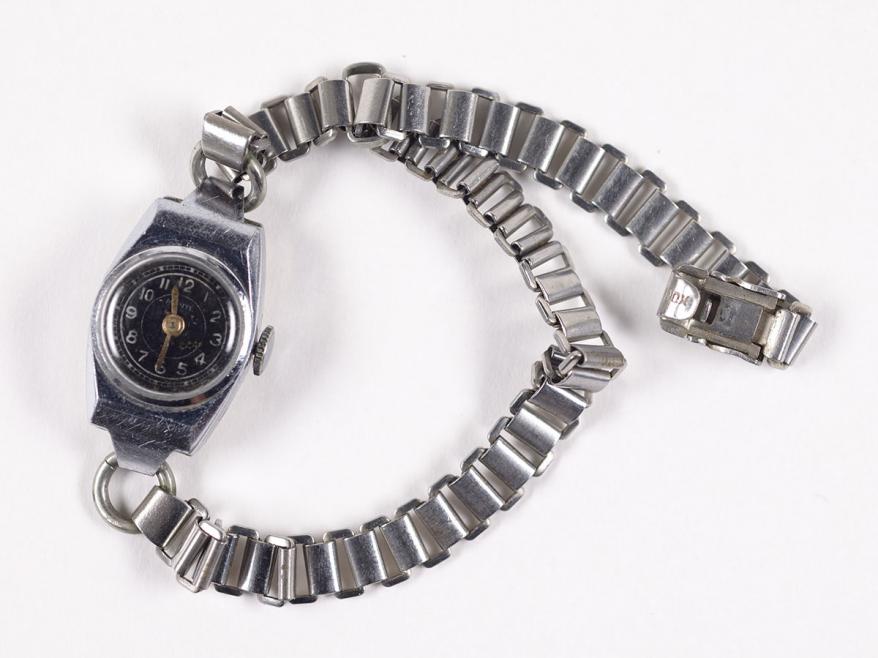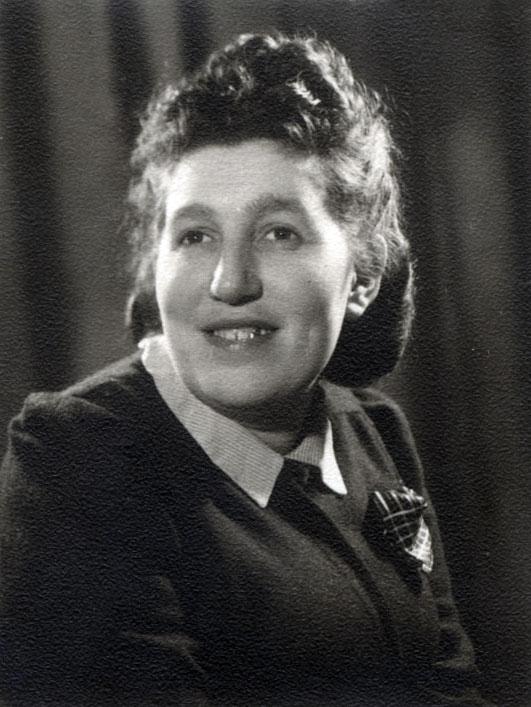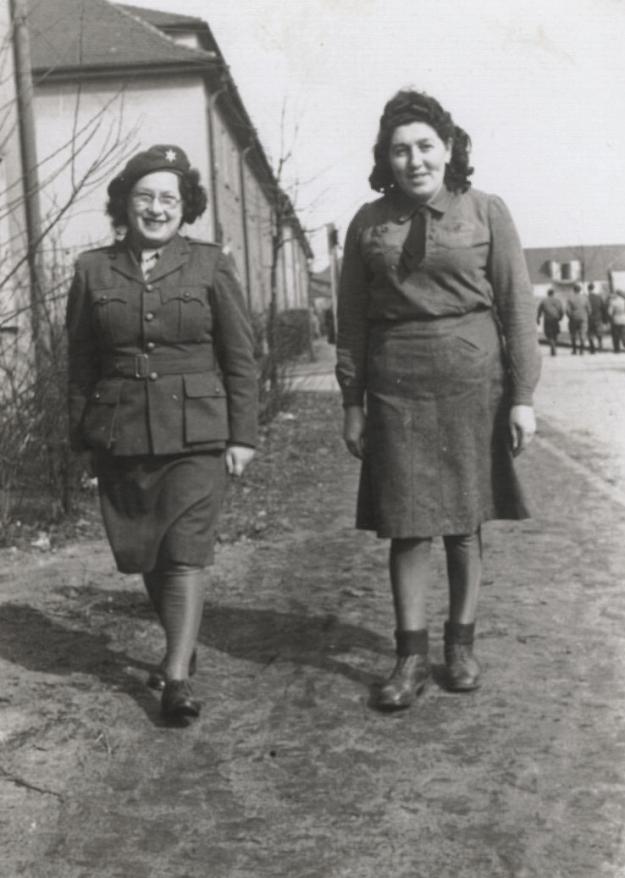
Yad Vashem Artifacts Collection
Courtesy of Sarah (Berkman) Herz, Tel Aviv, Israel





Sunday to Thursday: 09:00-17:00
Fridays and Holiday eves: 09:00-14:00
Yad Vashem is closed on Saturdays and all Jewish Holidays.
Entrance to the Holocaust History Museum is not permitted for children under the age of 10. Babies in strollers or carriers will not be permitted to enter.

Yad Vashem Artifacts Collection
Courtesy of Sarah (Berkman) Herz, Tel Aviv, Israel





Sarah Berkman was deported from the Vilna ghetto in Lithuania to a labor camp in Estonia. Before the deportation, Sarah hid some coins from her mother in the heel of her shoe. While digging trenches in the mud, the heel of her shoe broke off and all the coins were lost except one, a gold coin bearing the face of Tsar Nicholas II. Against all odds, Sarah succeeded in keeping this coin throughout the war, and later on, had it made into a pendant.
From Estonia Sarah was sent to the Stutthof camp and then to forced labor in an arms factory. Towards the end of the war, the female inmates, whose physical condition had severely deteriorated, were sent to Bergen-Belsen, part of the way on foot. Recalling life in Berge-Belsen, Sarah relates:
"There was a bunk below, they had already stopped removing the dead and I lay there crawling with lice for seven days…. Had there been an eighth day [before the liberation], I would not have survived.
"[I was liberated] on 15 April but I didn't know that I was free. They shouted, "Prisoners, you are free!" but I just lay there and couldn't move… There was one girl who was stronger than me and then they opened up the storehouses that were filled with good things. They brought me a dress and a green coat. This girl ran and [the prisoners] uncovered a pit that was filled with jewelry and watches. Here I have the watch that she brought me, …[which I received] when I was lying on the bunk … and they were already removing the dead bodies. I received it (the watch) on 16 April 1945, one day after the liberation."
Due to her frail condition, Sarah could not eat the food that the British soldiers distributed. This was fortunate, as many liberated prisoners in the camp died because they could not digest regular food. She slowly recovered and later worked in the DP camp "police" at Bergen-Belsen until she received a permit to go to Eretz Israel (Mandatory Palestine) in 1947, sailing there on the "Providence." In Eretz Israel she met her sister who had immigrated before the war, and her brother who survived in the ranks of the partisans. Of the seven siblings, only three remained alive.
Yad Vashem Artifacts Collection
Courtesy of Sarah (Berkman) Herz, Tel Aviv, Israel

Thank you for registering to receive information from Yad Vashem.
You will receive periodic updates regarding recent events, publications and new initiatives.

"The work of Yad Vashem is critical and necessary to remind the world of the consequences of hate"
Paul Daly
#GivingTuesday
Donate to Educate Against Hate


Worldwide antisemitism is on the rise.
At Yad Vashem, we strive to make the world a better place by combating antisemitism through teacher training, international lectures and workshops and online courses.
We need you to partner with us in this vital mission to #EducateAgainstHate
The good news:
The Yad Vashem website had recently undergone a major upgrade!
The less good news:
The page you are looking for has apparently been moved.
We are therefore redirecting you to what we hope will be a useful landing page.
For any questions/clarifications/problems, please contact: webmaster@yadvashem.org.il
Press the X button to continue



